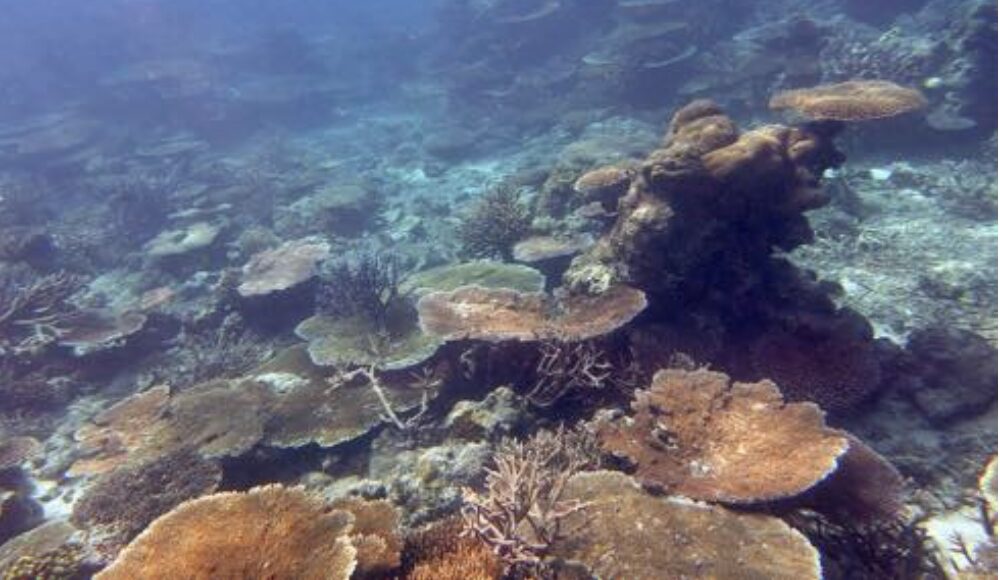Source: Australian Broadcasting Corporation (ABC)
Breeding “Super Corals”
Palau’s idyllic waters hide an experiment that scientists hope will save the world’s reefs from climate change-induced collapse.
At an outer reef, ceramic cribs are holding thousands of baby corals growing underwater.
They’re “super corals”, selectively bred to survive hotter ocean temperatures.
And they’re providing hope in global efforts to stop marine heatwaves from wiping out reefs.
Like humans, corals are genetically diverse and some have stronger immune systems, giving them a natural advantage in surviving bleaching events.
Palau’s corals appear to have those genetic gifts, having emerged relatively unscathed from marine heatwaves that have devastated reefs worldwide.
So researchers there are selectively breeding heat tolerant corals from different species and multiple generations. They’re planting them on reefs to help ecosystems survive rising sea temperatures. “Hopefully they’ll be able to grow and we’ll be able to tell if they’re able to withstand the next coral bleaching event here in Palau,” Lauren Piot, a French-American researcher at the Palau International Coral Reef Center (PICRC), says.

A haven from climate change devastation
The world’s corals have suffered through the fourth — and worst — mass bleaching event on record. The most recent bleaching event that began in 2023 has since impacted 84 per cent of reefs in 83 countries, according to the United States government’s Coral Reef Watch.
But Palau, a Pacific Island nation in the western Pacific, has been a sanctuary.
Scientists see it as a glimmer of hope amid predictions that up to 90 per cent of coral reefs worldwide could disappear by 2050, if average global temperatures warm by 1.5 degrees Celsius above pre-industrial levels.
While reefs overseas bear all the signs of climate change-related stress, Palau’s “have never looked healthier than they do now”, according to University of Queensland professor Peter Mumby, who has studied the country’s reefs for 20 years.
To read the full report, visit:
…………………………………
Related Links:
…………………………………
This content was edited by Noonsite.
If you have found this information useful, become a paid member to enjoy unlimited use of Noonsite plus many other perks. Your membership fees really help our small, dedicated team keep country information up-to-date in support of cruisers worldwide. Find out more about Noonsite Membership levels and benefits here.
Subscribe to our FREE monthly newsletter.
